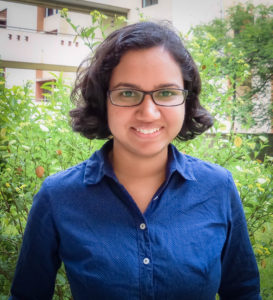 Prerna Sharma is the first female physics professor hired by the Indian Institute of Science (IISc) after twenty-seven years.
Prerna Sharma is the first female physics professor hired by the Indian Institute of Science (IISc) after twenty-seven years.
This story is an excerpt from Wonder Girls, a book by Indian author Varsha Adusumilli, published by Juggernaut Books.
This excerpt showcases Prerna’s dedication to research in soft matter physics and biophysics, combined with her love for problem solving; in it, she talks about the mentorship she received from her adviser, Dr. Shankar Ghosh.
“I was the first female professor hired by the physics department at IISc (Indian Institute of Science) in twenty-seven years. This revelation was disheartening. Many women do PhDs, but most of them don’t become tenured professors. Some of the brightest peers I had through my college years were women, but now I struggle to find female peers.
Perhaps one of the reasons most Indian women don’t pursue research work is that in this field transfers between universities are common during the postdoc years. For men in such situations, it is common for them to take their wives along, no matter where they are pursuing postdoc. It is rare in India to find a man who will drop his job and life to move for his wife’s new job. As a result, women in research drop out in huge numbers.
Not for a moment do I regret my decision of investing in my career. To be trained by Dr. Shankar Ghosh was the best thing that ever happened to me.
One needs the right thesis adviser to complete a PhD. Dr. Ghosh is a faculty member at TIFR (Tata Institute of Fundamental Research) who had become a professor at age thirty – which is almost unheard of in academic circles. Dr. Ghosh was a bright young scientist who was popular on campus. Students loved him and looked up to him. I attended some of his lectures and was blown away by his dynamism. At last I had found what I wanted to do.
I joined Dr. Ghosh’s lab, where we did research on soft matter physics. Dr. Ghosh was a demanding teacher, someone who kept his students on their toes. He had a sharp mind, was very opinionated and wasn’t ever afraid to speak up.
He gave his students twenty- four hours to solve a problem and to conduct an experiment. If you failed to do so within the given time, he would solve the problem himself the next day within no time! He was proving a point to us – that there is an answer to all problems. We just had to find out how to crack it.
Dr. Ghosh gave his students a sense of purpose every day; he kept us motivated, and as a result physics became joyful. He pushed me very hard, and this meant spending many intense days in the lab to complete an experiment. Nothing less than excellence was expected from me. He prepared me well for the world out there. The value he added to my life is immeasurable. I have known Dr. Ghosh for over a decade now, and he is like family to me. At twenty-eight, I became a professor at IISc, and this was possible only because of his training.
Six years later, I had completed my PhD at Dr. Ghosh’s lab. I wanted to experience what it was like to do research work outside India and asked my parents about it. When they gave me their blessings, Dr. Ghosh helped me with a strong recommendation to get a postdoc position in Boston.
Life in Boston was both challenging and harsh. The winters were brutally cold. I had changed my research subject, and everything was unfamiliar to the point where I couldn’t even set up my Internet connection. Imagine a scientist struggling to get her Internet working!
But as I got my bearings, things started to improve. Boston is the quintessential university town. The peer group of researchers is a tight-knit community that is proactive with feedback and encouragement.
As a result, my research on biopolymers picked up pace. Plus, Dr. Ghosh’s training and his emphasis on independent thinking worked wonders for me there. In Boston one must figure things out oneself, and many Indian students struggle with this kind of working style. You may get some direction on the approach, but you won’t get any spoon-feeding there. But Dr. Ghosh had already trained me to adapt to this new environment.
I get my biggest high when I am looking into the microscope. It’s thrilling to have a new problem to solve. When I see data that I can’t immediately make sense of, I get excited. I know that I’ll have to spend some quality time deciphering the data, and I love that feeling. I go to work for that joy.”
– Prerna Sharma, Physicist, Indian Institute of Science, Bengaluru,, India
Shared in partnership with Wonder Girls: Success Stories of Millenials who Fought to Do It Their Way (Juggernaut Books, Varsha Adusumilli).
Don’t miss Prerna’s full story in the print book, now out in India and selected parts of the U.S.
You can also access the book digitally here on Juggernaut.